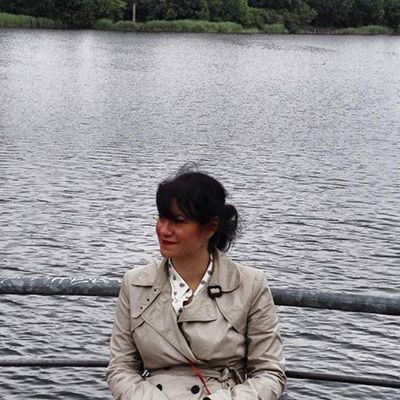
Agiatis Benardou
SHORT CV
Agiatis Benardou was born in Athens, Greece. She completed her BA and MA in Ancient History at King’s College London, where she was later awarded her PhD in Archaeology. She also holds an MA on Cultural Management and Communication from Panteion University in Athens.
Her research interests lie in the fields of scholarly research practices and user requirements and she is particularly interested in the ways in which digital tools and methods can provide new gateways through which research communities gain access to, create, revisit and repurpose research data, processes and infrastructures.
Agiatis has worked for a number of public and private organizations in the Greek cultural sector and is now a Senior Research Associate in the Digital Curation Unit, ATHENA R.C., as well as a Fellow in Panteion University in Athens where she has taught Digital Curation.
Agiatis has carried out extensive research as project member, WPL or PI in the context of various EU initiatives, such as Preparing DARIAH – the Digital Research Infrastructure for the Arts and Humanities, EHRI (European Holocaust Research Infrastructure), ARIADNE, NeDiMAH, Europeana Cloud, DARIAH-EU, DARIAH-GR, ARK4, #DARIAHTeach and, more recently, Europeana Research.
Agiatis currently serves as Co-Chair of DARIAH-EU VCC2 (Research and Education Liaison).
ABOUT PRESENTATION
TITLE
Research lifecycles in the humanities and social sciences
ABSTRACT
A host of initiatives have moved the open agenda beyond simply open access to journal articles or monographs to a consideration of the entire research lifecycle and points at which this can be opened up. Further, we are entering a second phase of open scholarship whereby the community is now seeking to link together the many scattered solutions for different pieces of the research lifecycle. Open Scholarship offers an important opportunity for scholars in the social sciences and humanities. Although open access has gained traction more recently, it is well-known that widespread adoption of and transition to open access to journals and monographs has lagged behind many other subject areas for a host of reasons. Engaging scholars in these subject areas in open scholarship more broadly offers and opportunity to approach open from a multitude of angles. However, the research lifecycle that is presented and visualized by those engaged in open science typically visualises that of a scientist working within STEM fields. This follows an expected pattern (e.g. planning, implementation, publishing, discovery and impact, preservation, re-use) or sets of patterns in the form of sub-cycles (e.g. planning cycle, project cycle, publication cycle, preservation cycle, impact). These visualisations do not align with the process of scholarly inquiry that many humanities scholars and qualitative social scientists are engaged in and risks marginalising some communities. Imagine a professor of music, who creates bits of initially unrelated compositions and harmonies, which arose out of inspiration derived from listening to a gentle brook. These might give rise to new understandings of former theories of music or push forward techniques. The aim of this workshop is to work together with scholars to identify a series of research workflows that better reflect the processes of scholarship in the humanities and social sciences. Once lifecycles are drafted, participants will identify points of potential sharing and open opportunities. These points will then be associated with current solutions and gaps will be identified.
WHEN
DAY 1 - 12:30 PARALLEL SESSION 1
Research lifecycles in the humanities and social sciences
See full programme here.